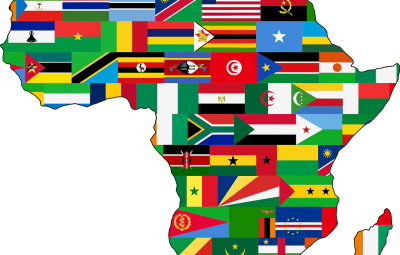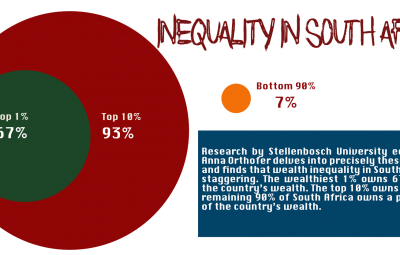Leveraging the Lean Startup Approach to Expedite the SMART City Mission: A Spotlight on Kigali
- September 21, 2019
- Urban Rural Development

The Lean Startup approach that has been adopted by Kigali in stimulating and implementing innovation to enhance service delivery is instructive on how countries, municipalities and various players and stakeholders can accelerate the smart city campaign while surmounting the towering hindrances to innovation and change in a bid to actuate the benefits of efficiency-focused innovation in the arena of service delivery.
Rwanda has indubitably been aptly hailed as Africa’s post-conflict success story. While the nation is still recovering from a harrowing genocide over two decades ago, resulting in the deaths of at least 800 000 people, the country is topping the charts on paragons of sustainable economic development underpinned on multi- dimensional strategies.
In this piece we explore how; among an arsenal of strategies; Kigali has adopted the “Lean Startup” method to surmount the ever-present obstacles to innovation in the country’s pursuit of multi-sectoral SMARTness.
Kigali’s Leap into SMARTness
Rwanda is one of the six African countries selected out of the 67 cities worldwide for the 100 Resilient Cities Initiative of the the Rockefeller Foundation. The country’s acute penchant for technology-driven development and transformation is best captured by its president Paul Kagame:
“Investment in ICTs is essential in taking any country to the next level of productivity and efficiency. Investing in ICTs is not at the expense of other sectors, investing in ICTs results in benefits for every sector and the earlier you start the better.” 1
(H.E Paul Kagame President of Rwanda and Chairman of the Smart Africa Board)
For Kigali and the whole of Rwanda, the wheels of the SMARTness drive started turning back in the year 2000 when the government of Rwanda (GoR) established Vision 2020 as an economic blueprint to achieve a knowledge-based economy and become a middle-income country by 2020.
Kigali: A Well Connected City
The eclectic development scheme has seen Kigali transform into an innovative and well connected city. Within the context of Vision 2020, Rwanda government launched a project in May 2016 that has seen the development of an extensive fiber-optic infrastructure set to deliver 4G LTE capability to more than 95 percent of citizens. This is possibly the reason the World Bank has pronounced Kigali as Africa’s second easiest place to do business.
How Has the Approach to Innovation Worked?
Leveraging the lean start up tenet of finding viable means of meeting needs and scaling up the solutions that work, Kigali has rolled out the Kigali Innovation City (KIC) initiative as a critical part of the Vision 2020. As a result of the project, the number of students in higher learning in 2016 was 86 000, a far-flung margin from the 4000 recorded in 1994.
Kigali Innovation City is a development drive premised on the view that the fourth industrial revolution will be synonymous with the digital transformation of economies on the planet. 6
KIC is part of a broad stratagem of transforming Rwanda from an agrarian economy to a knowledge-based economy.
According to the Rwanda Development Board (RDB), Kigali Innovation City is an Africa-focused innovation hub comprising three inter-dependent platforms which enable the innovation hub to sustainably deliver digital products and services for the accelerated digital transformation of Rwanda’s economy and for export to other African economies. 6
Kigali Innovation City Framework

Source: KIGALI INNOVATION CITY
The Digital Innovation Platform

Source: KIGALI INNOVATION CITY
The Three Inter-Dependent Platforms of Kigali Innovation City
• The digital innovation platform of technology clusters in which technology companies establish and operate innovation labs within a technology cluster aligned with their intellectual property.
• Human capital development platform to supply the required scale of professional talent to the technology companies, and to up-skill the employed talent in a range professional industry skills required throughout employment.
• Innovation-friendly financing platform to nurture technology companies within the innovation hub throughout their stages of growth.
Vision City
Vision City is Rwanda’s biggest housing project. The project will see the erection of high rise buildings as well as the transformation of slums into smart suburbs engineered for connectivity and SMARTness.
“Part of the project is to set up a free Wi-Fi service in the town square, solar-powered street lamps, a 36-meter antenna, powered by the sun to beam 4G LTE to residents, and motion censors that trigger the electricity when one walks into one of these homes.” 7
Ultimately the development project will yield an idyllic and tech-powered district within the next few years.
The Lean Startup theorem is a modern entrepreneurial management framework articulated by American Entrepreneur Eric Ries. 2
Ries outlines, “The Lean Startup method teaches you how to drive a startup-how to steer, when to turn, and when to persevere-and grow a business with maximum acceleration.” 3
The salient component of the Lean Startup approach is what is phrased as the measure-learn feedback loop. To trigger the flow, the first step in this entrepreneurial framework is to figure out the problem to be solved and then create a minimum viable product (MVP). This enables the practitioner to get in the learning curve quickly. The moment the MVP is in place, a startup can start to tune the implementation and the scaling engine. Subsequent steps involve measurement and learning which must be followed up by metrics that illustrate the cause and effect interplay and thus help reduce failure prospects of new ideas.
The Lean-Startup method, which upholds experimentation over elaborate planning, customer feedback over intuition as well as iterative solution design over traditional “big design up front”, development has been the mainstay of Kigali’s transformation strategy. Pertaining to implementation of Vision 2020, Rwanda’s Minister of Youth and ICT Jean Philbert Nsengimana outlines:
The idea is to leverage “Lean Start-Up” approaches to solution design while targeting practical Big Goals in each sector that have not been overcome by more conventional programs.”
The above captures the essence of the innovation development and implementation ideology adopted by Kigali in its ambitious Smart City drive.
How South Africa can Leverage the Potency of the Lean Startup Framework
The lean start up approach unlocks multiple possibilities for South Africa which has since year 2001 sought to reinvest public service through innovation. Among a host of challenges to innovation South Africa public sector faces salient challenges which comprise dealing with the sheer scale of a previously under serviced population as well as the rapid rural to urban migration and high rural population density. The lean start-up approach would significantly help alleviate the perennial predicament wherein public service has so much to do with limited capital resource.
One of the major strengths of the Lean Startup approach in the entrepreneurship space is that the framework significantly reduces the failure probability of a new product or idea through experimentation at low capitalization thresholds. In the entrepreneurship paradigm, the Lean Startup formula is adopted to alleviate the grim new start up failure rate shown to be around 75% across board. To the innovative revolution in public service, the framework ships with relevant prescripts for streamlined ideation, accelerated experimental implementation and the up-scaling of successful innovations that satisfactorily meet specific needs.
Like Rwanda, South Africa can be strategic in tapping the merits of this entrepreneurial framework at the strategic and policy formulation levels. Kigali has applied the doctrines of the framework to establish scalable innovative solutions in the dimensions of smart energy, environmental protection, health, public administration and economic growth as well as the improvement of general urban life.
Other than the predetermined deliverables of the Smart City drive, the remarkable imaginable spin off of this strategy would be to enable South Africa to be more resistant and adaptable to internal and external influences.
Among a host of deliverables, Kigali has put measures in place to see a significant reduction in energy consumption and exploration as well as adaptation of renewable energy sources such as biogas and solar. Among these comes more decisive control over raw materials consumption in the quest for smart energy generation, storage and utilization.
The metropolitan has also tapped innovation to spawn smart mobility. In the transportation sector, Rwanda is amongst a few progressive cities pioneering the implementation of Smart Mobility in form of the ‘tap and go’ ticketing systems. Kigali has also introduced Wi-Fi in public buses as part of the Smart Mobility drive.
Key elements of Vision 2020 include the Economic Development and Poverty Reduction Strategy 2007 – 2012 (EDPRS I) and later EDPRS II 2013 -2018. These have been buttressed in ICT as a key driver of economic growth. According to SMART Rwanda 2020 Master Plan 5 the National Information
and Communications Infrastructure plans, NICI Plans I~III 2000 – 2015 were later initiated to guide the ICT4D programs and initiatives linked to the objectives and goals outlined in Vision 2020 and EDPRS I & II.
Learning from Previous Mistakes
For most cities across the world seeking to leverage technological innovation to drive transformation and enhance service delivery; the Smart City phenomenon has been a hit-or-miss proposition. Rwanda has tapped the salient tenets of the quasi fail-proof Lean Startup approach to set the pace on how innovation can be implemented effectively while weathering the odds of change-resistance and capitalization dearth in the quest to implement innovations aimed at exponentially enhancing public service.
SMART Rwanda aims to help Rwanda achieve its ICT for Development vision in the spirit of the “One Village at a Time” mantra. Key to Rwanda’s Smart City drive is the ICT Development vision. Rwanda government has defined ten verticals (sectors) in which the government envisages that structured deployment of ICTs can have maximum impact.
The verticals are:
- SMART Education
- SMART Healthcare
- SMART Governance
- SMART Business
- SMART Agriculture
- SMART Environment
- SMART Job Creation
- SMART Infrastructure
- SMART Girls
- SMART Cities
“The key factor in these ideas is that they should be implemented quickly, tested for viability, and then scaled up if they are successful.” Outlines Jean Philbert Nsengimana capturing the essence of: and the argument for implementing the Lean Startup approach.
Instead of ploughing in huge budgets into exotic innovative solutions that have not passed the relevance and sustainability tests, Rwanda’s ongoing journey to all-round SMARTness provides a blueprint that South Africa other nations can adopt and replicate. The blueprint is framed on 3 pillars: Implement, Test and Scale up. As has been illustrated, the model has low failure probabilities and is an ace for public service innovation expenditure optimization.
The execution modus operandi of the SMART City drive in Kigali is also instructive on how leaders of society, particularly African Governments, can exit the ivory tower of illusory innovative possibilities and uncover real value and possibilities that innovation holds for societies.
As Nsengimana urges, “It is important that stakeholders understand that SMART Rwanda is not one of those fancy plans, coming to introduce new projects while old ones continue to stall or turn out to be white elephants. Indeed, the crux of SMART Rwanda is to do things smartly. That is to do more with less more transparently.”
In line with the foregoing, Nsengimana further advances that the key to the success of SMART Rwanda is the sustainability of all interventions and harnessing private sector resources instead of the government working in isolation of the private sector.
Human Capital Underpins Innovative and Sustainable Development
“The fourth industrial revolution that we are living in now, is based on the human brain. In Africa, we have a real opportunity to catch up with any other continent.” echoes Dr. Hamadoun Toure, Executive Director, Smart Africa who underscores the inalienable role of skills development and human capital as a major driver of the fourth industrial revolution driven by knowledge, information dissemination, digitization and innovation.
In the spirit of SMART Governance, Rwanda is championing effective coordination of projects and more active public participation. This is achieved through the establishment of various collaboration and public participation platforms in city councils, Rwanda Housing Authority and Mininfra Forums were pertinent issues in Kigali are thrashed together with the citizens. 6
South Africa and many African countries can take a leaf from the potency of the multi-dimensional strategies adopted by Rwanda. The remarkable transformation of Kigali illuminates the benefits of espousing feasible change and innovation implementation frameworks and ideologies that curtail ideation attrition, change-resistance while helping transcend the extant setbacks of unsustainability and cost in spearheading an innovative revolution aimed at improving people’s lives through optimizing and galvanizing public service.
References
1. http://www.mitec.gov.rw/fileadmin/Documents/Strategy/SMART_AFRICA_Sustainable-Cities_A_Blueprint_for_Africa.pdf.pdf
2. https://books.google.co.za/books?id=19forYX7NLQC&printsec=frontcover&source=gbs_ge_summary_r&cad=0#v=onepage&q&f=false
3. http://theleanstartup.com/principles
4. http://rdb.rw/fileadmin/user_upload/Documents/kigali/KIC_Booklet_Updated_2nd_MAy_.pdf
5. http://www.myict.gov.rw/fileadmin/Documents/Strategy/SMART_RWANDA_MASTER_PLAN_FINAL.pdf
6. http://rdb.rw/fileadmin/user_upload/Documents/kigali/KIC_Booklet_Updated_2nd_MAy_.pdf
7. https://qz.com/998970/kigalis-vision-city-and-lagos-eko-atlantic-are-among-several-smart-city-initiatives-taking-off-in-africa/
A Developmental Economist.
ThinkTank
The core business of ThinkTank is to assert fundamental human rights across all societal fronts, through incisive and educative critiques on wide ranging socio-political and economic issues in Southern Africa, Africa and the world over.







